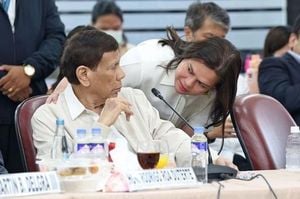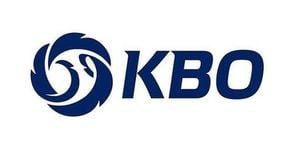The situation at motorcycle manufacturer KTM is growing increasingly critical as the company faces a looming financial deadline. The urgently needed financing of 600 million euros must be secured by May 23, 2025, to prevent a severe imbalance that could jeopardize the company's future. Pierer Mobility, KTM's parent company, is actively seeking investors or lenders to meet the required creditor quota of 30 percent.
To raise the necessary funds, Pierer Mobility is planning an extraordinary general meeting on April 26, 2025, where shareholders will vote on pledging KTM shares worth up to 500 million euros as collateral for a loan. Company spokesperson Hans Lang described this move as "appropriate in an exceptional situation" and emphasized that it signals to potential investors that the company remains operationally capable.
Originally, KTM aimed to raise 150 million euros through a capital increase, but this plan has reportedly failed due to a lack of binding commitments from investors. Instead, the company is now focusing on short-term loans secured by shares in KTM AG, which is central to its production.
Adding to the turmoil, CF Moto, a partner in sales and production, has decided to end its collaboration with KTM. Starting at the end of May, KTM will no longer sell CF Moto motorcycles in several European markets, including Germany, Austria, and the United Kingdom. This dissolution of partnership also affects production, as models like the 790 series, previously manufactured in Hangzhou, are unlikely to continue being produced as before.
In 2024, KTM produced around 40,000 motorcycles in China, but in contrast, its Indian partner Bajaj delivered more than three times that number. The end of the partnership with CF Moto may alleviate tensions with Bajaj, which had expressed discontent over the close collaboration with the Chinese competitor.
As the search for investors becomes a race against time, the list of interested parties has dwindled. Currently, only the Canadian BRP Group, known for its Rotax engine manufacturing, and Stephan Zöchling, chairman of the supervisory board of Pierer Mobility, are in the running. Zöchling had previously invested a double-digit million amount but has not made any new commitments yet.
Despite the financial uncertainty, KTM is attempting to establish stability. A new company agreement, effective from May 2025, will see the company implement a 30-hour work week until the end of July, alongside adjusted wages. This strategy aims to provide flexibility in response to the current situation while ensuring that job cuts remain off the table.
However, the company is also grappling with production challenges stemming from a shortage of materials. Due to delays in receiving certain components, the existing inventory is only sufficient for about 4,200 motorcycles, prompting a temporary reduction in production. KTM plans to ramp up operations again by August 2025, using this time to reduce stock levels.
KTM CEO Gottfried Neumeister remains resolute amid the turmoil, stating, "We act responsibly - our focus is on future security and job guarantee." He stresses that the current measures are necessary to navigate through these challenges while maintaining a forward-looking perspective.
In a related development, production at KTM's main plant in Mattighofen was restarted in mid-March 2025 after a three-month hiatus, but it has now been halted again for an expected duration of 90 days. The announcement of this production stop was made to employees early Thursday morning. The work in Mattighofen is scheduled to resume full operations on July 27, 2025.
This second production halt comes as a surprise, especially considering that an internal short-time work arrangement had only just expired at the end of March, two weeks after the production restart. The company has been adjusting production and personnel plans daily to compensate for the erratic delivery of parts from suppliers.
Some suppliers have reportedly ceased production of parts due to the initial 90-day production stop in winter, leading to critical supply chain issues. Currently, delivery times for some essential components are as long as 20 weeks, which has compounded the operational difficulties.
As of now, the stock levels have only been adequate for producing 4,200 motorcycles, necessitating the shift back to a 30-hour work week from May 1 to July 31, 2025, to mitigate further layoffs.
In light of these challenges, KTM must still meet its financial obligations by the approaching deadline of May 23, 2025. By this date, the company needs to transfer nearly 600 million euros to a trustee account managed by its insolvency administrator to fulfill the statutory restructuring quota and ensure that creditors receive at least 30% of the amounts owed to them.
This plan was approved by a majority during a meeting on February 25, 2025, and the company remains optimistic about meeting this requirement on time. However, delays in securing necessary funding have led to the postponement of a planned capital increase, which was initially intended to facilitate the entry of new investors.
KTM's insolvency administrator, Peter Vogl, expressed optimism about meeting the restructuring quota, stating, "I am optimistic." He noted that in previous instances, funds had been transferred just before they were critically needed, as seen with the first tranche of financing from Bajaj Auto, which arrived less than 48 hours before a significant meeting.
As the situation evolves, it remains unclear who will ultimately finance KTM's external capital needs and which lenders are currently being negotiated with. Austrian media continue to speculate about Bombardier Recreational Products as a potential investor, along with Zöchling, who has expressed interest in connection with other funders.
In the meantime, KTM will cease distributing CF Moto motorcycles in Europe starting June 1, 2025, marking a significant shift in its operational strategy as it attempts to navigate through these turbulent times.





